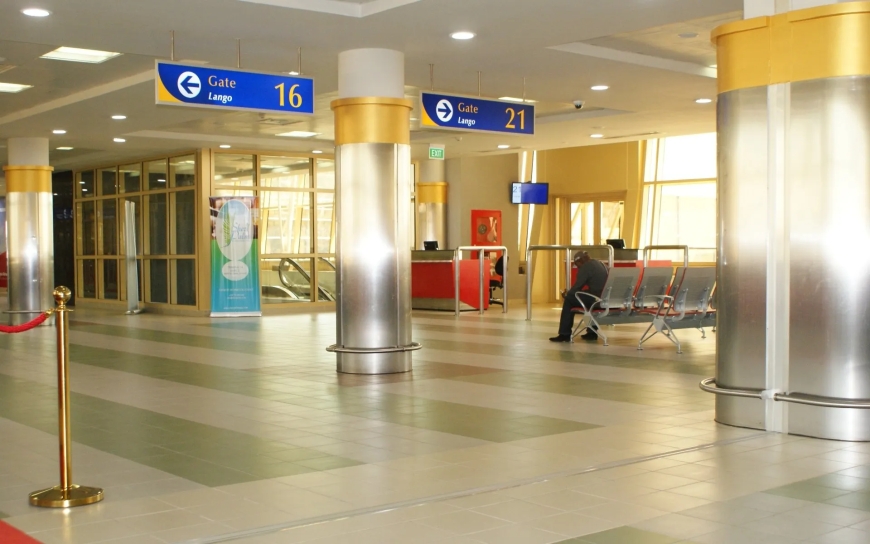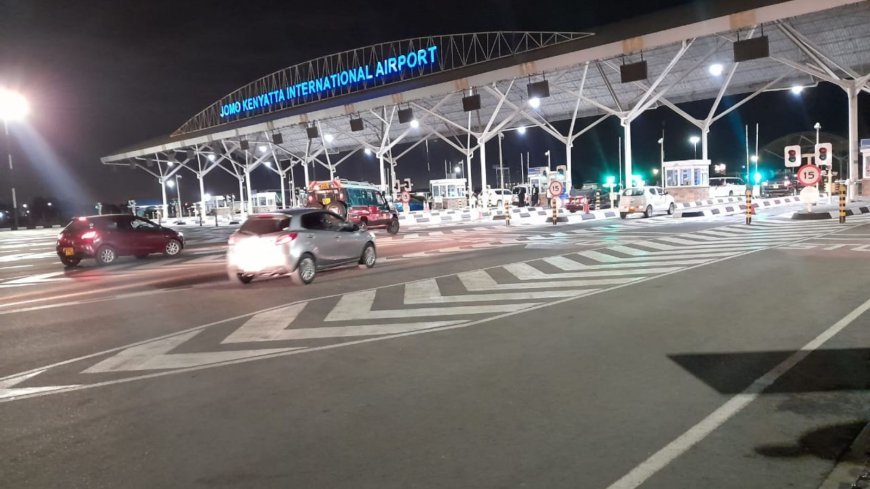Why Airport Gates Close Early Before A Flight Departs, Even If You Jump Over
When it comes to heading to the airport, it's almost always a matter of how early you can be and not how late you can arrive.

They say failing to plan is planning to fail. Remember those times our parents used to harass us in getting to the airport two or three hours before the departure time of a flight, be it domestic or international?
When it comes to heading to the airport, it's almost always a matter of how early you can be and not how late you can arrive. After all, the golden rule of flying is that you must be at the airport as early as reasonably possible, to allow time to park your car (or pay your Uber), check in, retrieve your boarding pass and go through rigorous security checks, all of which can take a considerable amount of time depending on how busy the airport is at any particular time of day...or night.
In terms of lateness, however, you have to hope that the boarding gate isn't closed once you get there, as it is unlikely for the agent to let you board after that point. An airport is not like a bus station where you can get to your means of transport a minute before departure and be allowed to travel.
Sometimes, being late can be out of your control. Knowing Kenya's urban areas very well, factors like traffic congestion, weather or accidents can lead to being late anyway. You could also be a passenger on a flight that has been delayed, which may cause you to run for your life in the airport once you land to get to your connecting flight.

Entrance to Jomo Kenyatta International Airport in Nairobi. /MARVIN CHEGE.VIRALTEAKE
Despite your reason for being late, there is one unwritten rule; you have to be at the gate at least 10 minutes before the plane takes off, or you risk missing your flight. The timings vary by airline so you are advised to check with the airline you are travelling with.
The attention of travellers is drawn to the fact that their presence is required at the airport two hours before the scheduled departure time. Most companies close their check-in counters 30 minutes before departure time. Once registered, it is also advisable to immediately go to the boarding lounge for police formalities which can be long if several departures are planned.
Arriving passengers must count an average of 20 to 30 minutes to complete the formalities of police and customs and to retrieve their luggage.
During those final minutes before departure, the ground crew and flight crew do their final safety checks and prepare for an on-time departure. If the door is reopened, the flight may be delayed, inconveniencing passengers and costing airlines money and credibility, hence you cannot just jump over a physical airport gate and still expect to catch your flight.
On-time departures are critical for airlines. Delays affect productivity and cost airlines millions of dollars every year. According to OAG, a data platform for the global travel industry, airlines measure and evaluate their on-time departures and delays to identify improvements to their operations.
Both large and small businesses consider airlines' on-time performance records when selecting an airline for their travel needs. This evaluation is important for business travellers who are frequently on the move. Timely arrivals and departures can significantly impact scheduling and business operations. Businesses often prefer punctual airlines to minimize travel disruptions and maximize efficiency.
Airline tasks after the boarding door is closed
Standby passengers
According to Simple Flying, after final boarding announcements are made, gate agents verify that missing passengers are not onboard and board the passengers standing by for the flight.
For example, if an airline’s final boarding time is 15 minutes before departure, missing passengers' seats are cancelled at that time and given to those standing by for the flight. Some airlines even offload the missing passengers' bags from the aircraft before departure.
Once boarded, the boarding door is closed, and the airline prepares for departure.
Sending final numbers
After the last passengers are boarded, the gate and ramp agent are responsible for reporting accurate passenger and baggage counts to know the weight and balance of the aircraft. These final numbers are crucial to determine the pilot’s flight plan and the amount of fuel needed for the flight.
Passenger count
Before closing the aircraft door, gate agents double-check that any passengers marked as not boarded are indeed not on the plane. Once they've confirmed this, they send the total count of passengers and infants in arms in each cabin and the number of cockpit or cabin jump seats.
Baggage count
Often, on full flights, the overhead bin space becomes full towards the end of boarding. Once full, the passengers must gate-check their bags.
Once their bags are tagged, ramp agents load these final gate-checked bags onto the flight. Ramp agents are responsible for sending the final baggage, mail, and freight numbers.
Time of departure
Gate and ramp agents verify with the pilots and flight attendants that they are ready for departure. The aircraft door is closed, the jet bridge is detached, and the aircraft is pushed back out to the taxiway.
Most airlines advise passengers on domestic flights to arrive at the airport at least two hours before their scheduled departure. For those flying internationally, arriving three hours in advance is recommended.
As aforementioned, the timeframe provides travellers enough time to check in their luggage, navigate through the security checkpoints, and locate their departure gate with time to spare before boarding. This ensures a smooth and less stressful pre-flight experience, allowing passengers to address any unforeseen delays or issues without the risk of missing their flight.

Kenya Airways and Turkish Airlines planes at Moi International Airport in Mombasa. /INOORO FM.X
Airline boarding doors are not reopened after closing to ensure on-time departures, a practice crucial for airlines as delays cost millions annually. Yes, even if a physical gate can still be opened, an electronic gate which complements it, cannot!
When the doors close, it is the last chance for the airline to double-check passenger and luggage counts to help accurately plan the flight and fuel needs. This process also allows airlines to manage standby passengers and luggage needing to be checked at the gate. Keeping to the schedule helps ensure everyone's safety and reduces inconvenience for passengers and ground staff.






